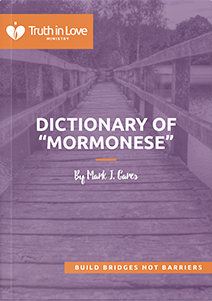In Mormonism, the Fall is viewed as a necessary and positive event that allowed Adam and Eve to become mortal and have children, making human life possible (2 Nephi 2:22–25). LDS teaching says Adam and Eve could not have children before the Fall, and that by eating the fruit, Adam “chose correctly” by keeping the greater commandment (Dallin H. Oaks, “The Great Plan of Happiness,” General Conference, Oct 1993).
In biblical Christianity, the Fall is a catastrophic act of rebellion that brought sin and death into the world (Romans 5:12–19). Scripture does not teach that sin was necessary for children, since God commanded Adam and Eve to be fruitful before the Fall (Genesis 1:28). The Fall shows humanity’s need for redemption through Christ.
See also: The Glorious Fall Of Adam And Eve

